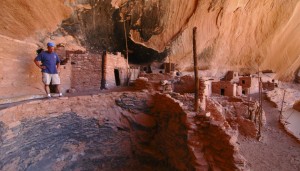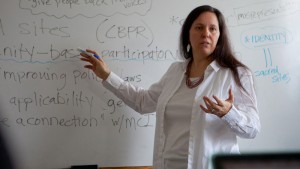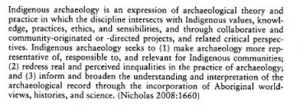
A topic that appears frequently when discussing anthropology and repatriation is Indigenous Archaeology. Although I remember this concept being mentioned throughout my time studying archaeology and anthropology, thinking back, I realize I never exactly knew what the exact definition was and what actions it involves. It seems that I am not the only one. The definition is still being formed, changed and perfected today and many authors and anthropologists admit that it is hard to come up with and decide on one.
George P. Nicholas, in his definition of indigenous archaeology for the Encyclopedia of Archaeology(1) states that it is the intersection of native knowledge and values with the field of archaeology, as well as collaboration with indigenous people. It also includes having a critical perspective on what past archaeologists have done. His definition explained in the words of Dr. Sonya Atalay (Ojibwe Tribe), is “archaeology done with, for, and by indigenous people”, although of course it is not that simple. Indigenous archaeology is not just archaeology done by indigenous people, which is what most people assume, but it is also a way of conducting archaeology practice and theory that involves Native American people collaborating with archaeologists or directing the archaeology themselves. It also must involve a critic of western and colonial archaeology practices while continuing to research and respect indigenous peoples experiences and beliefs. These ideas of Indigenous archaeology can also be applied to other countries and other indigenous people.

One of the problems that Nicholas claims in his paper Seeking the End of Indigenous Archeology is that there shouldn’t be a divide between indigenous archaeology and archaeology, all archaeology should be indigenous archaeology. Instead, it is seen as something that is new, different and on the sidelines of popular archaeology. I would agree, and add that is also seen as a form of resistance and rebellion within the archeology community.
An issue that arises with that is, as Vine Deloria states, that “American society has, in fact, institutionalized rebellion by making it popular” (Deloria, 98). It has been made into a consumer product and become popularized, so that everyone wants to be different and fight for a cause. One of those causes I could see being indigenous archaeology. For example, one must understand that consultation is different than collaboration, and although a person can say they are doing indigenous archaeology, they aren’t actually being respectful or beneficial to the indigenous people. Indigenous archaeology is very important and something that can help decolonize the fields of anthropology and archaeology and attempt to right past wrongs. However, I fear that just stating it as a solution without understanding what it entails is problematic, for we must actually do our part to a help, we can not just speak and write about it without realizing we all have a part to play.
(1)
Further reading:
http://www.academia.edu/376073/Seeking_the_End_of_Indigenous_Archaeology
https://muse.jhu.edu/journals/american_indian_quarterly/v030/30.3atalay02.html
Picture resources:
https://www.umass.edu/sbs/sites/default/files/atalay_lowres_web.jpg
http://news.stanford.edu/news/2010/march/wilcox-native-american-030310.html

